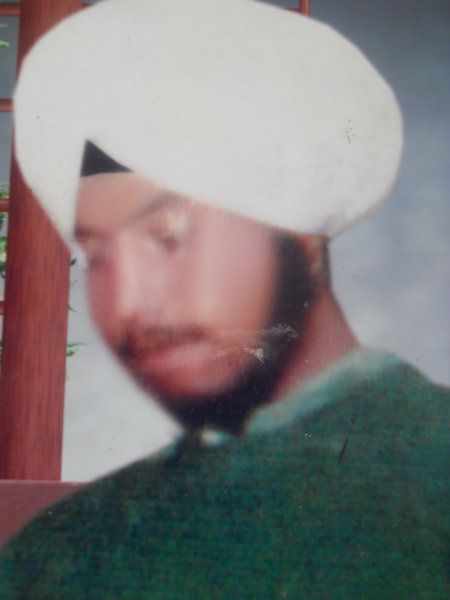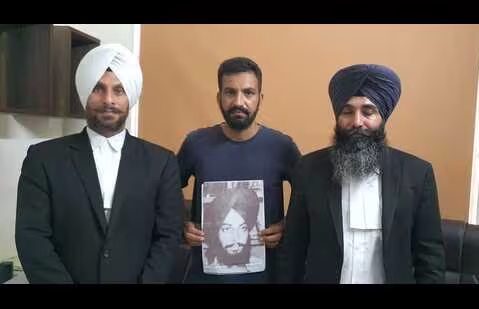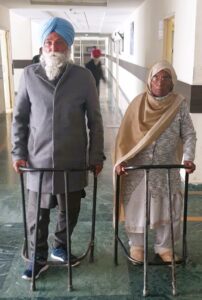Press Note: “Dead Men Do Speak”: Two Separate and Disturbing Developments in Punjab’s Courts – Victims of Fake Encounters Claimed as Sikh ‘Militants’ Alive and Still in Danger, Actual Victims Were Innocent Sikhs.”
“Dead Men Do Speak”: Two Separate and Disturbing Developments in Punjab’s Courts – Victims of Fake Encounters Claimed as Sikh ‘Militants’ Alive and Still in Danger, Actual Victims Were Innocent Sikhs.”
FOR IMMEDIATE RELEASE
October 18, 2023
As legal cases continue their slow march through Punjab’s courts, two remarkable and deeply troubling developments have finally a piercing spotlight on a persistent and disturbing pattern in the state – innocent victims being falsely identified as Sikh ‘militants’ and subsequently killed in separate fake encounters. What makes these revelations even more shocking is that both ‘militants’ originally declared killed, are now confirmed to be alive and, even more disturbingly, under threat.
In the first case, a Special Investigation Team (SIT) recently filed murder charges related to a ‘fake encounter’ that unfolded 31 years ago. The Punjab police had initially claimed that the victim was Gurnam Singh Bandala, was a militant killed in an exchange of fire. However, investigations revealed that the victim Sukhpal Singh was, in reality, an innocent Sikh.
In a parallel development, a legal battle has been unfolding in the CBI Court, Mohali, in the case of CBI v Dharam Singh. During the proceedings, it has come to light that one of the two victims in this case is still very much alive, despite official records indicating otherwise. The ‘militant,’ Jagir Singh, who was supposedly killed in the encounter, is now 71 years old and has spent 15 years in prison for a case registered at the very police station where he was officially declared deceased following the encounter by Ajnala Police.
Jagir Singh, after appearing through video conferencing from the hospital to confirm his identity and existence, has now gone missing, raising grave concerns for his safety. PDAP Lawyers representing Bapu Kashmir Singh, the father of Daljit, the second Sikh victim in the encounter, have implored the court to conduct a thorough investigation into the overlooked aspect of the CBI investigation – the need to ascertain the identity of the second victim, who was allegedly illegally cremated by the Ajnala Police.
These cases highlight disclosures made by Ex-DGP Virk, shedding light on the alarming fact that hundreds of individuals who were claimed to be ‘militants’ and reported as killed were, in fact, alive and living under new identities. Meanwhile, the victims in these encounters were innocent Sikhs, wrongfully targeted. Tragically, these deceptive practices were often employed to create new identities for ‘CATs,’ a euphemism for ‘Militants-turned-informers,’ or to enable Punjab Police officers to claim rewards for these supposed killings, resulting in out-of-turn and accelerated promotions.
As we mark the 17th year of our investigations and legal representation of victim families, it’s evident that these cases merely scratch the surface. They underscore the pressing need for truth, justice, accountability, and transparency in addressing the state-sponsored crimes committed against the predominantly Sikh population during the insurgency across Punjab
The ongoing 44 CBI cases have unearthed a wealth of evidence that was never fully examined or tragically overlooked for over three decades. As we continue our mission to uncover the truth behind these extra-judicial killings, we remain steadfast in our commitment to #IdentifytheUnidentified and bring truth and justice to the victims and their families.
For media inquiries, please contact:
Punjab Documentation & Advocacy Project
- Email: [email protected]
- Phone Number: +91 9988227597
- Website: www.punjabdisappeared.org

Photo of innocent victim Daljit Singh who was killed in a fake encounter by Punjab Police






